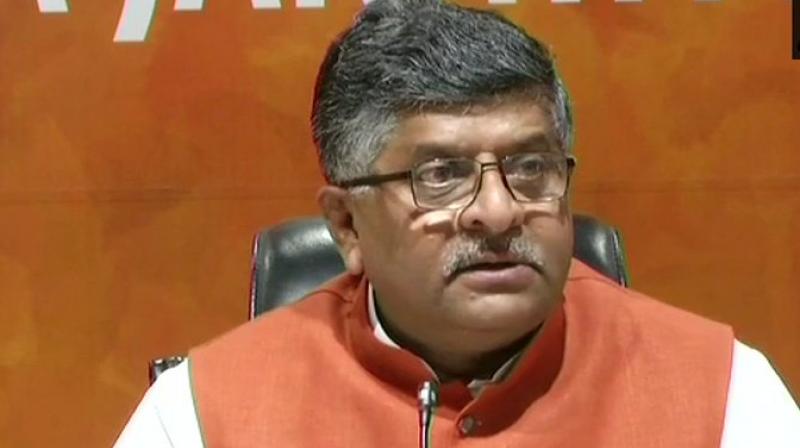Tech cos write to Centre over proposed changes in IT rules

New Delhi: Global internet firms Mozilla, Wikimedia Foundation, and GitHub have asked government to abandon proposed amendments to Information Technology (IT) act, 2000 and start fresh consultation.
Mozilla, Wikimedia Foundation, and GitHub have written an open letter to the Union minister of electronics and IT, Ravi Shankar Prasad, expressing serious concerns over the draft intermediary liability rules proposed by the Ministry last month.
“As currently drafted, these rules would undermine Indian users’ access to myriad sites and services, putting them at a considerable disadvantage compared to users, developers, and organisations in other countries,” said the letter.
The letter said that these rules “would push us to surveil and censor content to the point of embedding automated infrastructure for surveillance and censorship of Indian users into our networks.”
The letter said that they support the consideration of measures to make the internet a safer place and acknowledge that building a rights-protective framework for tackling illegal content on the internet is a challenging task. “But we cannot support the current draft of the rules put forward by the ministry,” it said.
For the sake of the internet’s future and Indian users, “we urge you to abandon these proposed rules and begin afresh with public consultations on the appropriate way to counter harmful speech online.”
The comments come after the government disclosed plans to amend the IT rules wherein social media platforms and messaging apps (referred to as intermediaries) will be required to deploy tools to “identify” and curb unlawful content as well as follow stricter due diligence practices.
As per the proposed amendments social media firms will have to enable investigative agencies to trace “originator” of fake news on their platforms. It has proposed that social media companies will have to develop tools to prevent posting of “unlawful information” on their platform, drawing criticism from activists that it will hamper “freedom of speech” in the online space.

